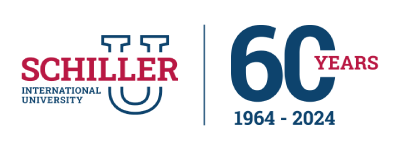On 22 February 2023, at the initiative of the Paris campus, Schiller students had the opportunity to attend a unique experiential learning workshop designed to bolster their systems thinking skills.
To recall, systems thinking is an interconnected and holistic approach to problem-solving and understanding the world. It is a way of thinking which focuses on how the various parts of a system interact with and influence each other. Problems or events can thereby be better defined, causes explored, and system changes developed with the intent of solving complex problems and situations. Systems thinking concepts, habits, and tools can be applied to any area of interest and study.
One systems thinking model which can prove helpful for understanding global issues and that was used by students during this workshop is the Iceberg Model. This model is a visual tool used to understand the underlying causes of problems and events and can help show how these are caused by underlying factors that are not always immediately apparent. While the Iceberg Model is not the only systems thinking tool, it is one of the most popular and well-known.
This highly experiential workshop, which was of specific interest to International Relations & Diplomacy (IRD) students but open to all interested students, provided an introduction to systems thinking as a powerful way of thinking about current and pressing global issues.
The workshop allowed students to approach problems by 1. asking how the elements of a system interact, 2. looking for patterns over time, and 3. seeking the root causes.
During the workshop, students were invited to reflect on a selected case study in order to ask themselves the following questions: What is happening? What is working? What is not? What is possible? What tools are available to change the system and thus produce the desired results?
Rather than just reacting to immediate issues as they often arise internationally, students became true systems thinkers likely to understand a system fully and be able to implement lasting and impactful change.
The experiential workshop was organized and animated by Dr. Myriam Benraad, Schiller’s Global Academic Chair in International Relations & Diplomacy (IRD).

 Request information
Request information








